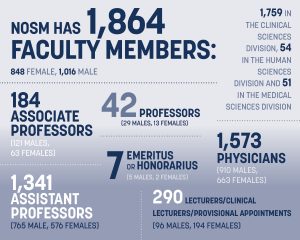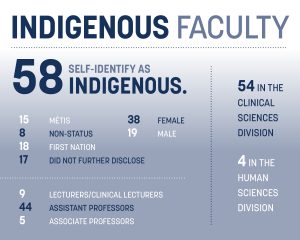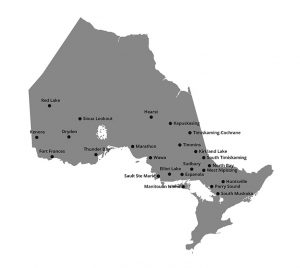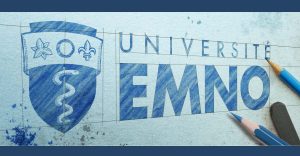Indigenous youth across Northern Ontario have been learning more about STEM concepts through health sciences programming developed in partnership between Science North and the Northern Ontario School of Medicine (NOSM). Working to further build relationships with Indigenous communities in the North, the organizations are empowering Indigenous youth to achieve their learning goals and promote the careers in health care.
A fun and informative session was held on November 1, 2021, to highlight the partnership with rural, remote and Indigenous Northern communities. The educational programming delivers health sciences related content focusing on health, human sciences, and wellbeing. “This partnership contributes to our strategic goal of deepening our engagement with Indigenous audiences and being Science North in all of Northern Ontario,” says Ryan Land, Director of Education and Northern Programs at Science North.
During the spring of 2021, the team provided 15 schools with Science Day programming, with over 350 youth participants. Programming was completed virtually due to COVID-19 restrictions. Students were able to participate in synchronous learning opportunities through various online platforms. Students in communities with limited internet connectivity were also able to participate in asynchronous learning sessions with recorded video.
Summer 2021 programming included the delivery of a variety of age-based STEM kits to 21 rural, remote and Indigenous communities, resulting in the delivery STEM kits to more than 1,500 youth who were able to complete a hands-on activity to enhance their learning in the health sciences.
The boxes include three different STEM kits:
- Junior (Grades 4-6): Olfactory System and Scents
- Intermediate (Grades 6-9): Concussion Goggles
- Senior (Grades 9 &10): Circulatory System
When Northern Ontario suffered multiple forest fires leading to the evacuation of many rural, remote and Indigenous communities in the summer of 2021, NOSM answered the call to action by partnering with local health-care leaders, First Nation communities, and Science North to deliver programming to evacuees who were evacuated to larger urban centers, including Sudbury and Thunder Bay.
“Indigenous youth in Northern Ontario often find themselves isolated and disproportionately affected by the social determinants of health,” says Yolanda Wanakamik, Director of Indigenous Affairs at NOSM. “By partnering with communities, we will make an impact on the number of youth who are engaged with science, interested in setting educational goals, and possibly working towards a career in health care. Importantly, our youth mentors will show them what’s possible for their future.”
This partnership represents one of four cornerstones supporting the recently established Indigenous Health Practitioner Pathway at NOSM, made possible through the generous donation of founding supporters RBC, with a funding commitment of $195,000 through RBC Future Launch, and a $20,000 donation from the Aubrey and Marla Dan Foundation.
– 30 –
About Science North
Science North is Northern Ontario’s most popular tourist attraction and an educational resource for children and adults across the province. Science North maintains the second – and eighth- largest science centres in Canada. Science North’s attractions include a science centre, IMAX® theatre, digital Planetarium, butterfly gallery, special exhibits hall, and Dynamic Earth: Home of the Big Nickel. Science North, in partnership with Laurentian University, have developed North America’s first and only comprehensive Science Communication program, a joint graduate diploma program. As part of its mandate, Science North provides science experiences throughout Northern Ontario including outreach to schools and festivals, summer science camps and more, and has a permanent base in Thunder Bay providing outreach to the Northwest. Science North is an agency of the Government of Ontario. For more information, please visit sciencenorth.ca.
About the Northern Ontario School of Medicine
The Northern Ontario School of Medicine (NOSM) is an award-winning socially accountable medical school renowned for its innovative model of distributed, community-engaged education and research. With a focus on diversity, inclusion, and advocacy for health equity, NOSM relies on the commitment and expertise of the peoples and communities of Northern Ontario to educate health-care professionals to practise in Indigenous, Francophone, rural, remote and underserved communities. NOSM’s graduates, faculty, learners and staff are changemakers who lead health-system transformation in Northern Ontario. The School is a recipient of the Charles Boelen International Social Accountability Award from the Association of Faculties of Medicine of Canada and the prestigious ASPIRE award, which recognize international excellence in social accountability and medical education.
For further information, please contact: communication@nosm.ca
Emily Kerton
Senior Scientist
Outreach and Indigenous Initiatives, Science North
Phone: 807-631-4076
Email: kerton@sciencenorth.ca








